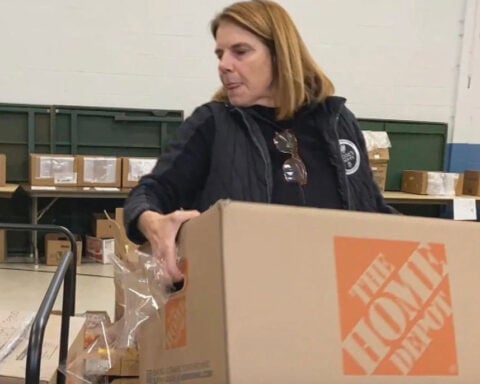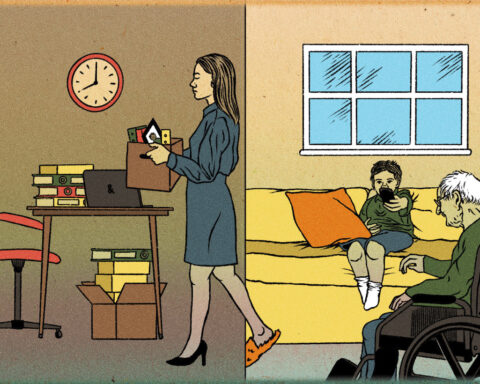A new study in Australia, suggests that sexual strangulation, a potentially dangerous practice, is becoming more prevalent among young adults. Researchers are warning about the risks of brain injury associated with this activity.
The study, conducted by researchers from Melbourne University Law School and University of Queensland, found that more than half of young people surveyed had engaged in choking during intimate encounters. Published in July in the Archives of Sexual Behavior, the research has sparked discussions about changing sexual behaviors and associated health concerns.
Surveying 4,702 individuals between ages 18 and 35, the study revealed that 51% had strangled a partner at least once during intimacy, while 57% reported being strangled. Participants referred to the practice as "choking" rather than strangulation.
Heather Douglas, co-author and domestic violence expert at Melbourne University Law School, emphasized the risks involved. "It doesn't matter if there are no apparent injuries, or whether the person consented," Douglas said in a statement. "Brain injury can also be incremental — getting a bit worse with each choking — and the person may not know they have suffered a brain injury. The effects of repeated strangling are insidious and build over time, like the effects of repeated concussions on footballers."
The study indicates that young people reported being strangled an average of five times during sex by three partners. The first instance of strangulation, whether as the recipient (31%) or initiator (30%), typically occurred between ages 19 and 21.
Gender differences were noted in the findings. Among those surveyed, 59% of men and 40% of women reported strangling a partner. The highest prevalence was among transgender or gender-diverse individuals, with 78% reporting being strangled during intimate encounters.
Maree Crabbe, co-founder of It's Time We Talked, an Australian violence prevention project, told The Guardian, "Over the last few years, young people spoke incredibly frequently about strangulation, or 'choking.' They often referred to it as a mainstream practice, and that was new."
The researchers point out that there are no previous comprehensive studies on this topic in Australia, making it difficult to establish definitive trends. However, they report observing an increase in young people mentioning sexual strangulation in recent years.
One of the primary concerns highlighted by the study is the risk of brain injury and memory loss associated with the practice. The study also raised issues surrounding consent. Douglas noted that using a "safe word" or "safe gesture" can be challenging during sexual strangulation. Alice Birbara, a 30-year-old actor from New South Wales, shared her experience of non consensual strangulation with The Guardian, highlighting the complexities of consent in such situations.
"It's all very complex, thorny stuff but I can say wholeheartedly that there's no safe way to choke," Birbara said. "And the risk is just not worth it. Because there's just so many other fun things to do that are nowhere near as risky."
The study explored how young people are introduced to the practice. Pornography was the most common source (61%), followed by film (40%), peers (32%), social media (31%), and discussions with partners (29%).
Sarah, a 35-year-old woman interviewed by The Guardian, suggested that increased openness about sexuality in media and culture might be contributing to the trend. "We're watching TV shows that provide the space to talk about it," she said.
Crabbe emphasized the role of cultural context in shaping sexual behaviors. "We all make decisions about sexuality in our sociocultural context," she told The Guardian. "And it's not just about individual choice, we're also influenced by the people around us and by the culture around us."
The researchers stress the importance of critical thinking about sexual practices and their potential consequences. "Our brain is a really significant sexual organ. If we repeatedly associate pleasure with, you know, any number of things, then we can eroticize it," Crabbe explained. "That means we need, I think, to be able to think critically about what we allow ourselves to be eroticized by."
While acknowledging personal choice in consensual activities, Douglas cautioned that strangulation presents unique risks. "People should be able to engage in whatever they want to do, if it's consensual and talked-through and everybody wants to do it and it's feeling good for people," she said. "But [strangulation] is a rather particular thing."
The study's findings come amid growing concerns about intimate partner violence and the normalization of potentially harmful practices. Health professionals and violence prevention advocates are calling for increased education about the risks associated with sexual strangulation.
The study's authors conclude by calling for increased awareness and education about the risks associated with sexual strangulation.

 Peyote sacred to Native Americans threatened by psychedelic renaissance and development
Peyote sacred to Native Americans threatened by psychedelic renaissance and development
 Trump has pressed for voting changes. GOP majorities in Congress will try to make that happen
Trump has pressed for voting changes. GOP majorities in Congress will try to make that happen
 US holiday retail sales come in above forecast, Mastercard says
US holiday retail sales come in above forecast, Mastercard says
 Why this Mexican American woman played a vital role in the US sacramental peyote trade
Why this Mexican American woman played a vital role in the US sacramental peyote trade
 What is the Native American Church and why is peyote sacred to members?
What is the Native American Church and why is peyote sacred to members?
 Speculation mounts over cause of Azerbaijan Airlines plane crash that left at least 38 dead
Speculation mounts over cause of Azerbaijan Airlines plane crash that left at least 38 dead
 AI is a game changer for students with disabilities. Schools are still learning to harness it
AI is a game changer for students with disabilities. Schools are still learning to harness it
 Futures lower in holiday-thinned trading
Futures lower in holiday-thinned trading
 A new study in Australia, suggests that sexual strangulation, a potentially dangerous practice, is becoming more prevalent among young adults. Researchers are warning about the risks of brain injury associated with this activity.
A new study in Australia, suggests that sexual strangulation, a potentially dangerous practice, is becoming more prevalent among young adults. Researchers are warning about the risks of brain injury associated with this activity.






